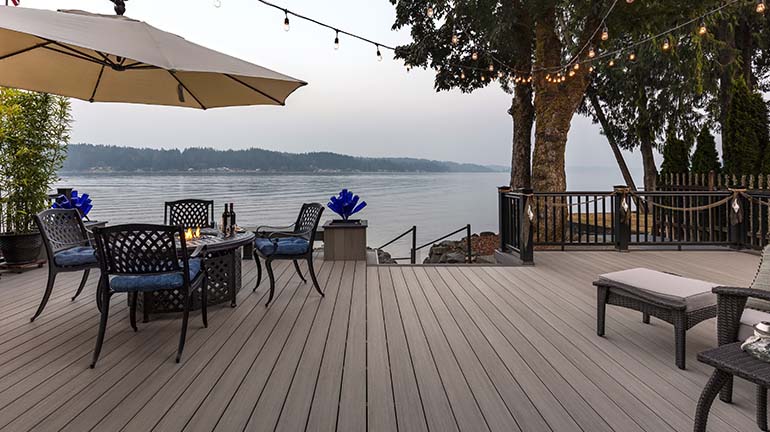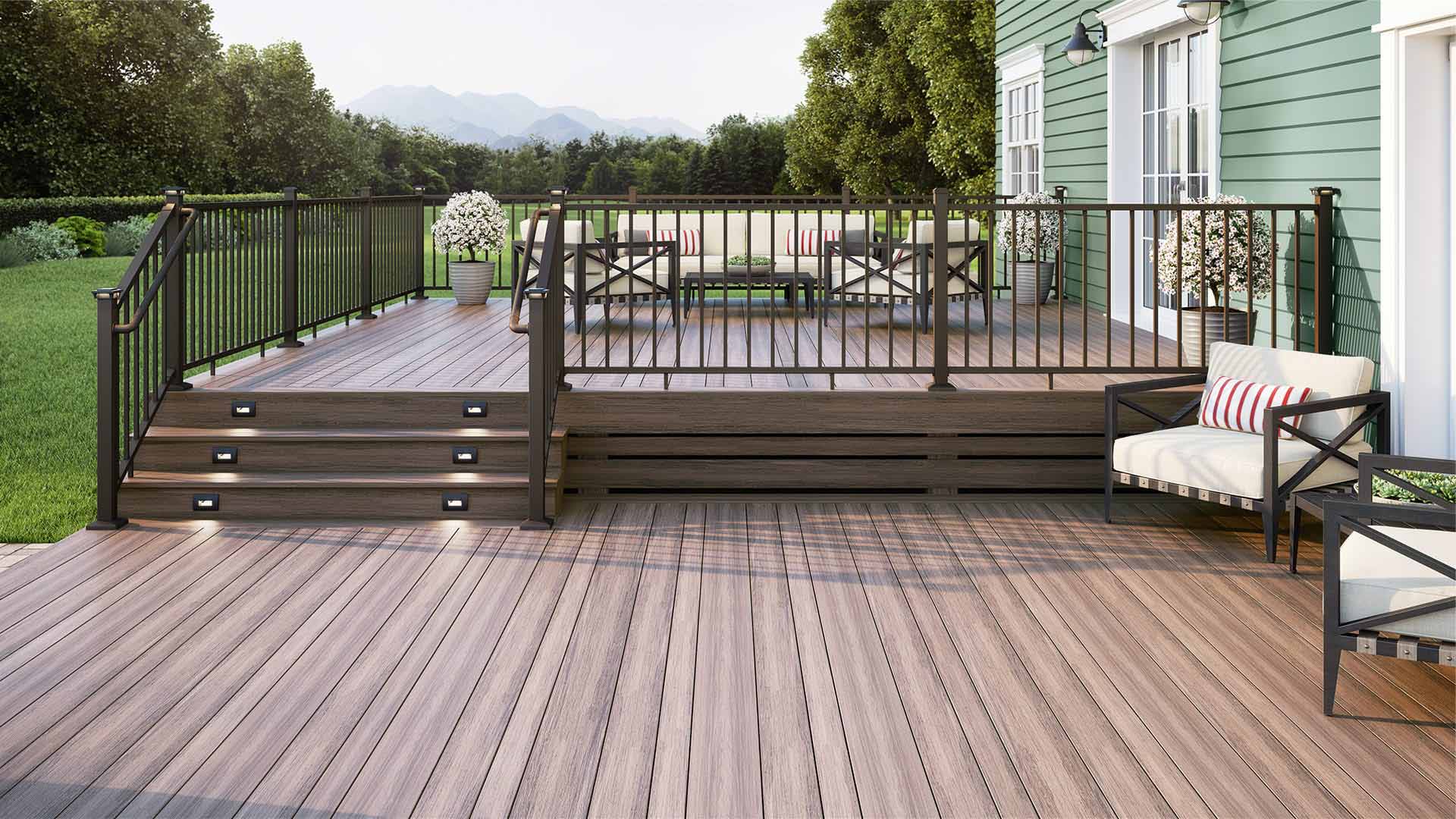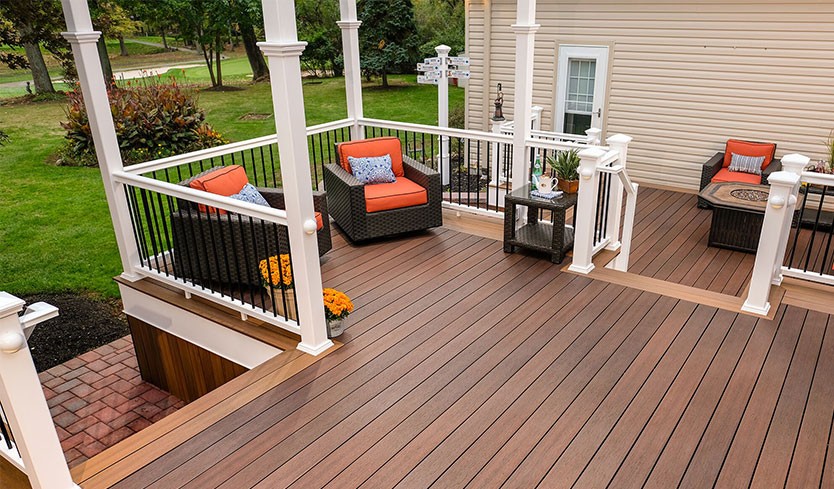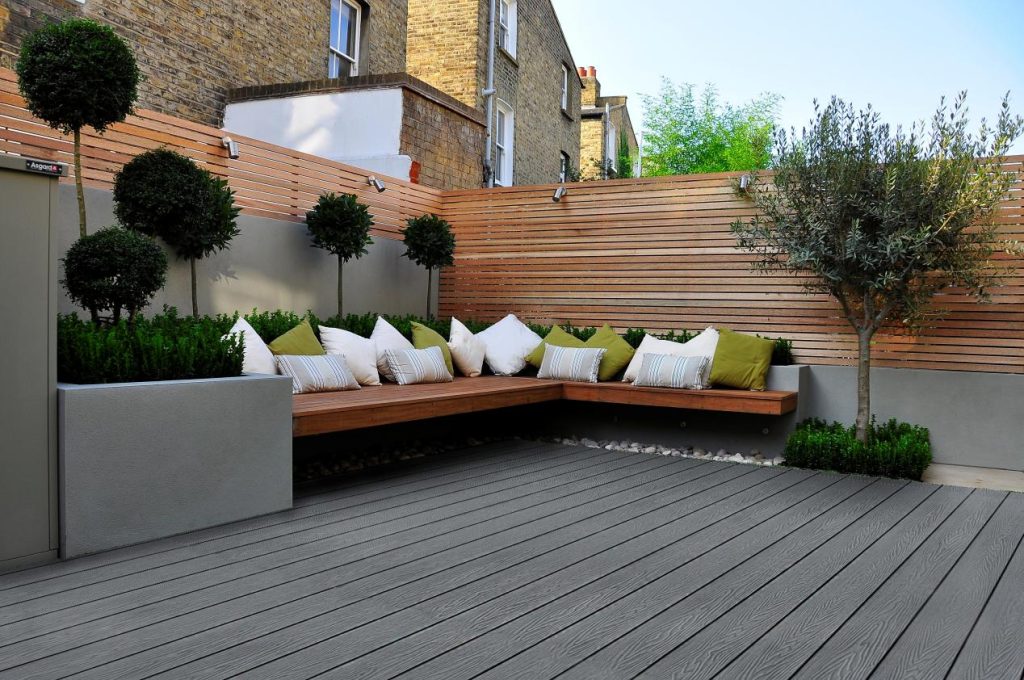
When it comes to choosing the right decking material for your outdoor oasis, the options have evolved far beyond traditional lumber. Modern innovation has given rise to a variety of manufactured products, such as PVC and composite decking, that offer enhanced durability and longevity. In this article, we’ll delve into the benefits and differences between these high-performance materials and shed light on why composite decking stands out as the superior choice for your decking needs.
PVC Decking vs. Composite Decking: Unveiling the Distinctions
In the realm of decking, PVC (polyvinyl chloride) and composite materials have emerged as leading contenders. Although both are partially synthetic, they possess unique properties that cater to distinct preferences and requirements. Let’s explore the characteristics of each and why composite decking ultimately takes the crown.
PVC Decking: A Synthetic Marvel
PVC decking, composed entirely of plastic without any organic wood pulp, boasts remarkable low-maintenance attributes and exceptional resistance to water and weather. Unlike traditional wood decks that demand annual sealing, PVC decking thrives without such meticulous upkeep, making it an attractive option for those seeking convenience. Over the years, PVC technology has evolved, addressing concerns related to plastic-like appearance and heat retention. Leading manufacturers now offer hyperrealistic wood aesthetics, complete with intricate grain patterns and a diverse palette of captivating colors.
Composite Decking: Blending Strength and Aesthetics
Composite wood decking harnesses a blend of polymers and organic wood fibers to achieve heightened durability and resilience against varying weather conditions. A defining feature of composite decks is the application of three- or four-sided polymer caps that fortify water resistance, safeguarding the core of the decking boards. Notably, brands like HOSUNG incorporate entirely organic fiber cores with comprehensive polymer capping, ensuring maximum performance and protection. This innovation shields decks from fading, cracks, and rot, promising longevity and lasting beauty.
While composite WPC decking may not match PVC’s remarkable lifespan of up to 50 years, it certainly outperforms traditional wood with a projected life span of 25 to 30 years. Moreover, composite decking offers an advantage in terms of affordability, making it a budget-friendly alternative for homeowners without compromising quality.
Decoding the Decking Dilemma: PVC or Composite?
The battle between PVC and composite wood decking hinges on several factors, including longevity, water resistance, budget considerations, and installation ease. Let’s delve into these considerations to help you make an informed decision:
- Aesthetic Appeal: Composite decking gains a distinctive edge in this arena with its ability to mimic the allure of natural wood. The finish of composite decking exudes a warmth and authenticity that resonates with those who cherish the elegance of wood aesthetics. This authentic wood look finish not only complements various architectural styles but also elevates the overall visual appeal of the deck.
- Longevity: PVC reigns supreme in this category, with a lifespan extending well beyond other materials due to its synthetic composition and resistance to weathering and rot. WPC decking, although durable, boasts a slightly shorter life span of around 25 to 30 years.
- Water Resistance: Synthetic PVC retains its advantage with exceptional water resistance, making it an ideal choice for poolside decks and areas exposed to saltwater. PVC decking also incorporates features like slip resistance and protection against algae and mold, enhancing safety around wet surfaces.
- Slip Resistance: Composite decking takes safety to new heights with its remarkable slip resistance, ensuring a significantly safer environment for activities, whether you’re leisurely strolling or engaging in bustling endeavors. This feature makes it an unequivocally secure option, instilling confidence in every step you take on your deck.
- Budget-Friendliness: When it comes to upfront costs, composite decking takes the lead, offering an economical alternative to PVC boards. Additionally, both options boast reduced maintenance costs compared to traditional wood decks, presenting long-term savings.
- Ease of Installation: While both PVC and composite decking follow similar installation processes, PVC stands out as the easier material to work with due to its lightweight nature. This feature proves particularly advantageous for DIY enthusiasts.
Conclusion: The Optimal Decking Choice
In the quest to select the optimal decking material, understanding the unique attributes of PVC and composite decking is paramount. While PVC offers remarkable longevity and water resistance, composite decking presents an appealing blend of aesthetics, slip resistance, and stability. With both materials boasting affordability, low maintenance, and durability, the decision ultimately hinges on your specific requirements and preferences.








